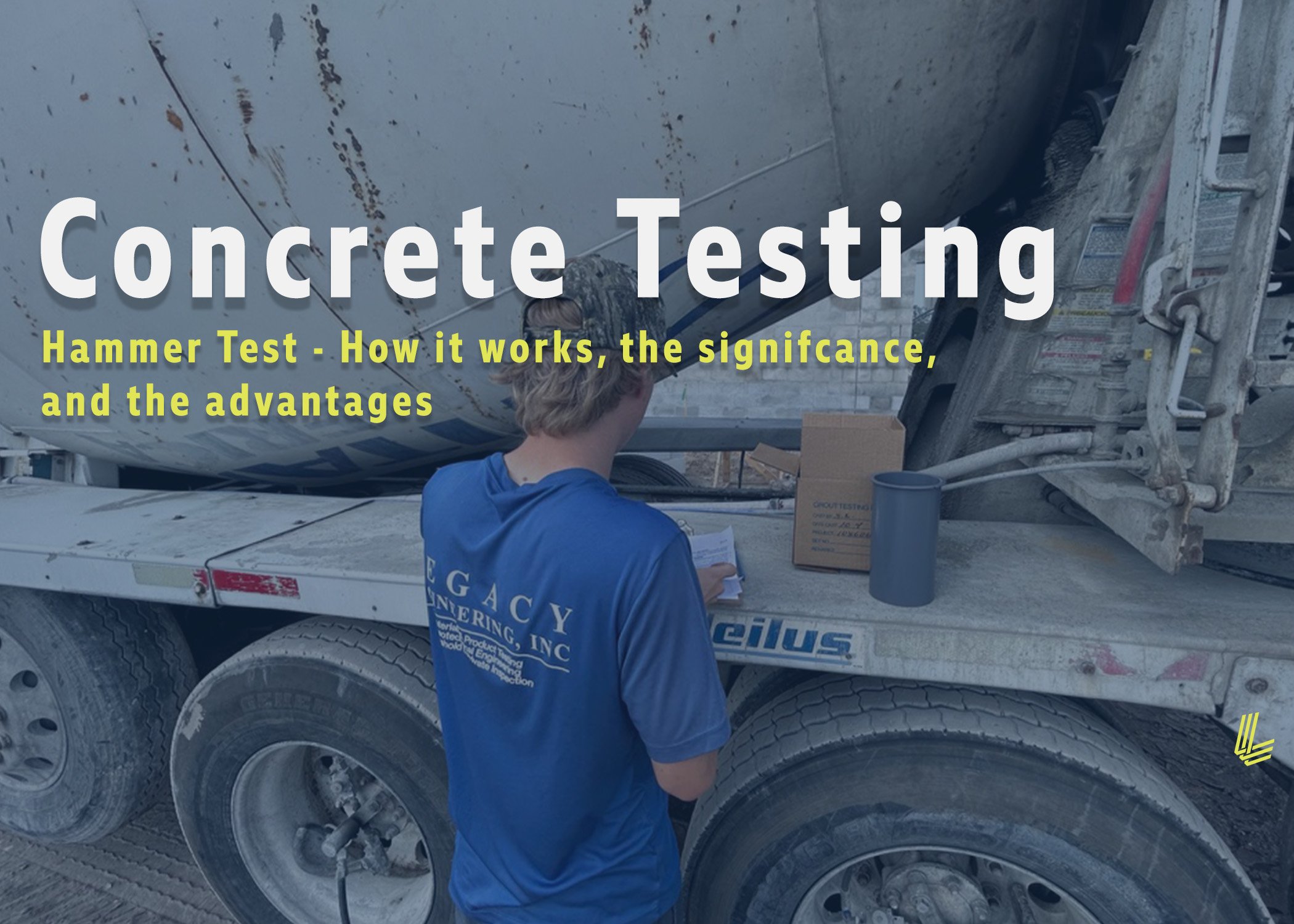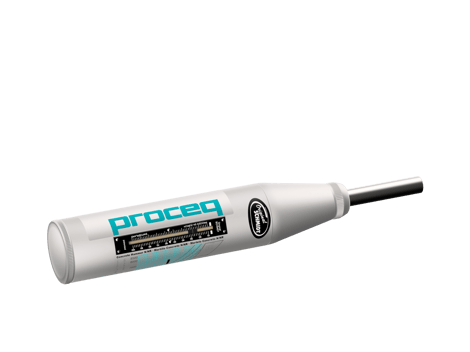Concrete Testing - Hammer Test
January 19th, 2024 | 2 min. read

In the world of construction and civil engineering, ensuring the quality and durability of concrete is paramount. One indispensable tool in this endeavor is the Swiss Hammer Test, a method designed to assess the compressive strength of concrete structures. In this blog post, we will explore the Swiss Hammer Test, its significance, and how it aids in the evaluation of concrete integrity.
Understanding the Swiss Hammer Test:

The Swiss Hammer Test, also known as the Schmidt Hammer Test or Concrete Test Hammer, is a non-destructive testing method used to estimate the compressive strength of concrete.
This portable and easy-to-use device provides quick and on-site measurements, allowing professionals to assess the quality of concrete in real time.
How It Works:
Impact Energy:
The Swiss Hammer operates based on the principle of rebound impact. The device is equipped with a spring-loaded mass that is released to strike the surface of the concrete with a predefined impact energy.
Rebound Velocity:
Upon impact, the rebound velocity of the mass is measured. This rebound velocity is influenced by the hardness and compressive strength of the concrete.
Conversion to Compressive Strength:
The rebound value is then converted into an estimated compressive strength value using a calibration curve. This provides a quick and indicative measure of the concrete's strength.
Advantages of the Swiss Hammer Test:
Non-Destructive:
One of the key advantages of the Swiss Hammer Test is that it is non-destructive. Unlike traditional methods that may involve coring or breaking samples, the Swiss Hammer allows for on-site testing without causing any damage to the structure.
Portability:
The compact and portable nature of the Swiss Hammer makes it a practical tool for use in various locations. Construction professionals can carry it easily, enabling them to assess multiple areas within a structure.
Real-Time Results:
The Swiss Hammer provides instant results, allowing for immediate feedback on the quality of the concrete. This real-time assessment is invaluable for making quick decisions during construction or renovation projects.
Significance in Concrete Assessment:
Quality Control:
The Swiss Hammer Test serves as an effective quality control measure during and after construction. It helps identify areas of concern, ensuring that the concrete used meets the required strength standards.
Assessment of Existing Structures:
In addition to its application in new constructions, the Swiss Hammer Test is useful for evaluating the condition of existing structures. It aids in the detection of potential weaknesses or deterioration over time.
Cost-Effective:
The non-destructive nature of the Swiss Hammer Test contributes to cost-effectiveness. It eliminates the need for expensive and time-consuming laboratory tests, making it an efficient choice for routine assessments.
The Swiss Hammer Test stands as a reliable and practical solution for professionals in the construction and civil engineering fields. Its non-destructive nature, portability, and ability to provide real-time results make it an essential tool for assessing and ensuring the strength and integrity of concrete structures. As we continue to build and maintain our infrastructure, the Swiss Hammer Test remains a crucial asset in the pursuit of durability and safety.
Testing your concrete before it sets and hardens is crucial and matter of fact, preferred! Visit our construction materials testing service page to view our testing methods. Within the page you will find a video from our materials testing manager, a complete service breakdown, related blog posts, and a scheduling form so that your materials are tested.
Topics: